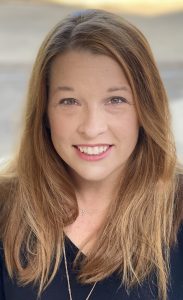OXFORD, Miss. – Experienced educator Nicole Roberson has been tapped to lead the University of Mississippi School of Education’s efforts to train the next generation of AP-certified teachers in the fields of science, technology, engineering and mathematics.
Roberson has been named as executive director of the Mississippi Public School Consortium for Educational Access at the School of Education. The consortium aims to not only to boost the number of AP-certified teachers, but also plans to bring them into some Mississippi communities where there are none.
For the last 20 years, Roberson has been fostering the development of scientific thinking and reasoning to high school students as a teacher who worked in both the Oxford and Senatobia school districts. In her new role, she will serve as a UM instructor of secondary science education.
She said the work of the consortium is meaningful and she’s looking forward to making a difference as executive director.
“Educating other people is probably one of the most meaningful things you can do with your life,” Roberson said. “Preparing kids and helping them plant the seeds for them to find their true passions is an amazing job to have.”
A Mississippi native and graduate of Belmont High School in northeast Mississippi, Roberson is also an AP-certified teacher. She said she tries to foster a technology rich, innovative classroom, which gives students the best, most current learning experience possible.
She’s experienced results too, having led her students to score higher than state and global averages in both AP Biology and AP Environmental Science.
She particularly enjoys seeing the progression of her students, she said.
“There’s the fulfillment from seeing something make sense to a student for the first time and seeing them make those connections,” she said. “You also teach them to be independent problem-solvers, and also find the things they want to pursue.
“It’s pretty amazing.”
Through the work of the consortium, Roberson said she wants to help get grow the number of teachers Mississippi.
The consortium is housed at Ole Miss and is made up of a group of rural Mississippi public school districts that joined together to implement an initiative to provide promising high school students in rural communities access to advanced STEM courses. It has partnerships with Mississippi State University, Millsaps College and Jackson State University.
She believes innovators in STEM fields will solve many of the world’s problems and drive innovation going forward. There’s never been a more crucial time for STEM teachers to train the next generation of scientists, doctors, engineers, pharmacists and others, she said.
“This is our future,” Roberson said. “Our future is in finding ways to incorporate science, the scientific method for research purposes and also new engineering methods, which are going to solve the problems of today and also of the future.”
Roberson believes the earlier young students are exposed to STEM concepts, the sooner they become interested in those career paths. The consortium’s work can help with that goal, she said.
“All the areas of education are super important, and vital for the success of our students, but a lot of times in early education, the majority of the focus goes toward students’ reading and comprehension of mathematics skills,” Roberson said. “Then, as they move on up into upper elementary, they are more exposed to the science concepts.
“Early exposure to STEM concepts is crucial.”
Roberson is an extraordinary educator and brings rich experience into her new role, said Matt Dolan, CEO of the Global Teaching Project who has worked closely with the consortium since its inception.
“We are very pleased to have Nicole join our effort, where she will have a platform to reach even more students,” Dolan said. “Nicole will help bring quality instruction to communities throughout the state, particularly areas that historically have had limited access to advanced STEM courses.”
David Rock, dean of the Ole Miss education school, agrees Roberson’s role is an important one.
“We are very pleased to welcome Nicole, a highly accomplished teacher who will help develop the next generation of outstanding STEM teachers for our state,” Rock said. “We are very fortunate to be able to work with Ms. Roberson, who will play a critical role to help maximize the learning that takes place in our classrooms.”
Roberson encourages anyone who is thinking about becoming a STEM teacher to check out opportunities available through the consortium.
“We don’t have a huge number of secondary science future teachers (at UM) right now, but the ones we have are absolutely wonderful and they will go out into the world and make a huge difference,” Roberson said.
Ideal candidates for this path are usually those students who liked being in the classroom as students and who also want to help the next generations of learners.
“The best candidates usually loved school and they enjoyed the environment,” Roberson said. “I imagine we have a lot of people in classes in the university who also loved school that much. We can help them figure out how to be the facilitator of that kind of classroom experience for others.”
